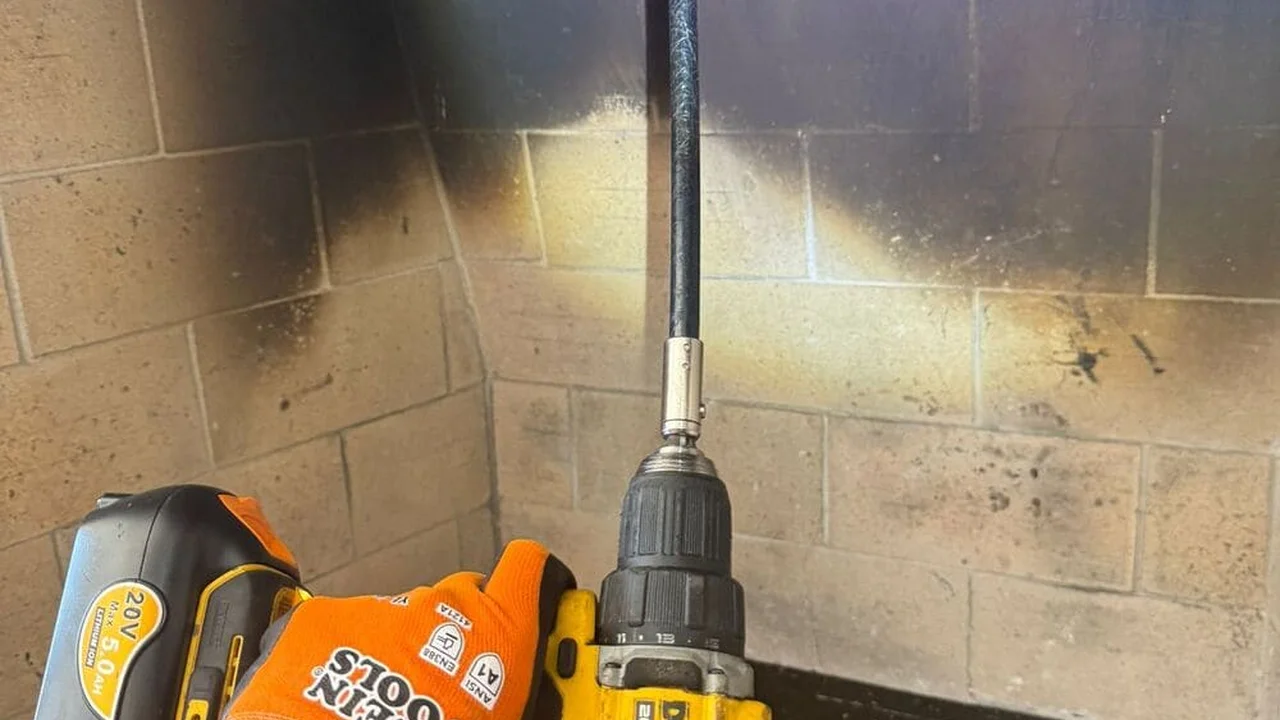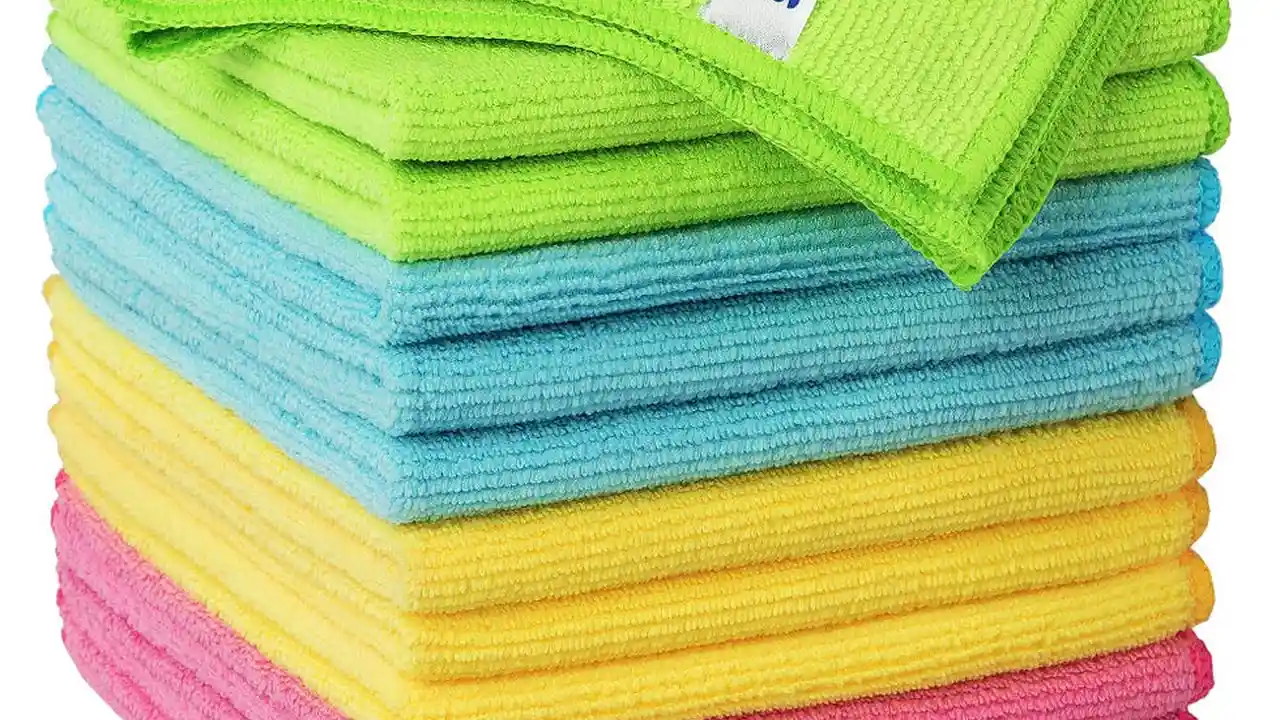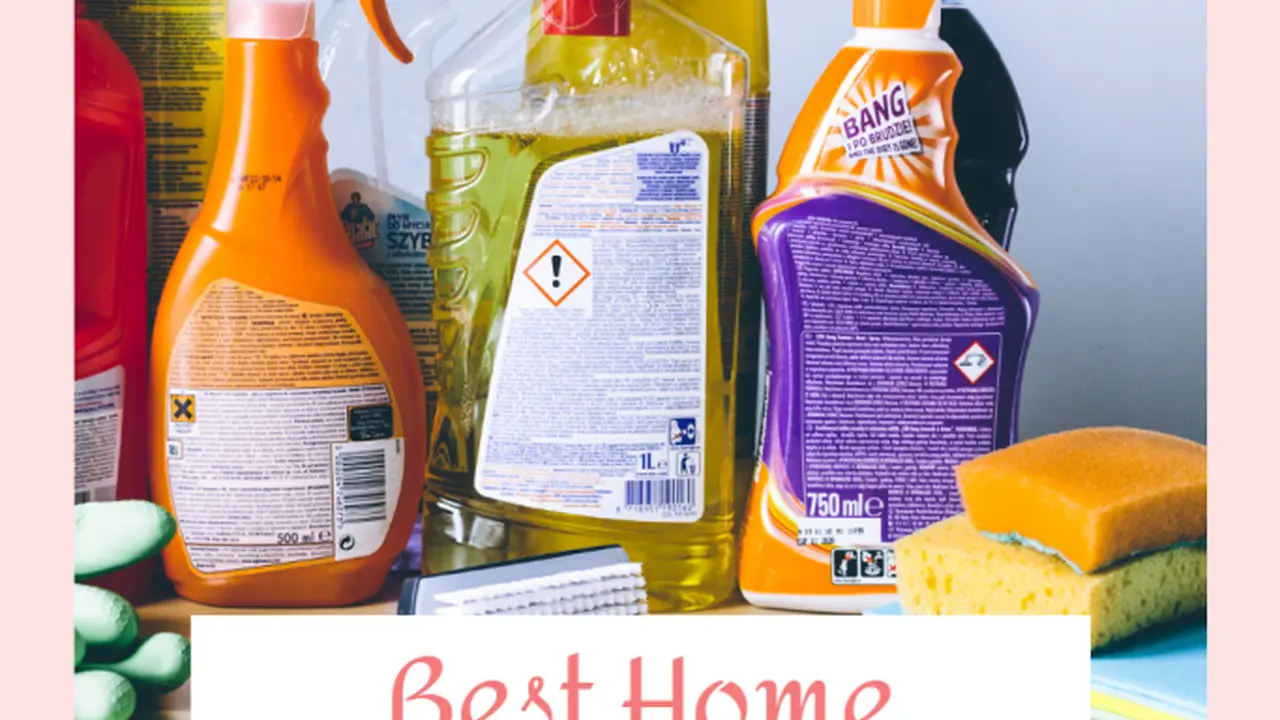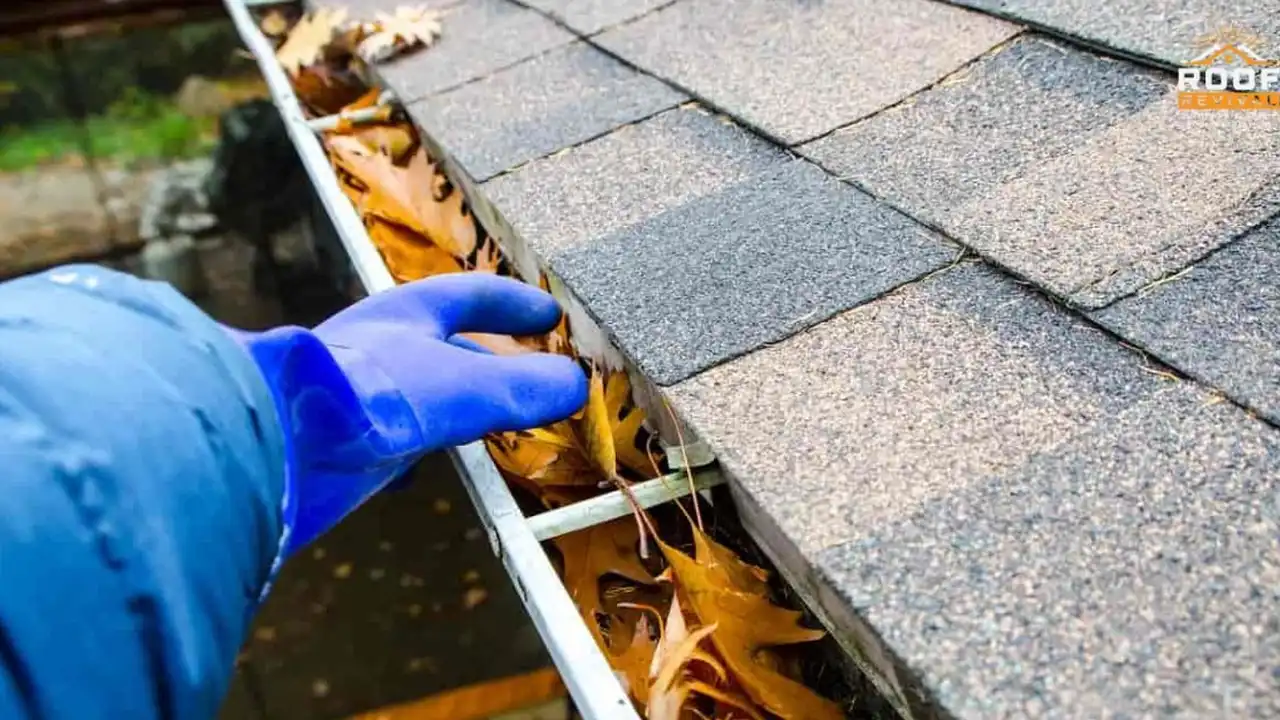DIY Cleaning Solutions: Save Money and Go Green
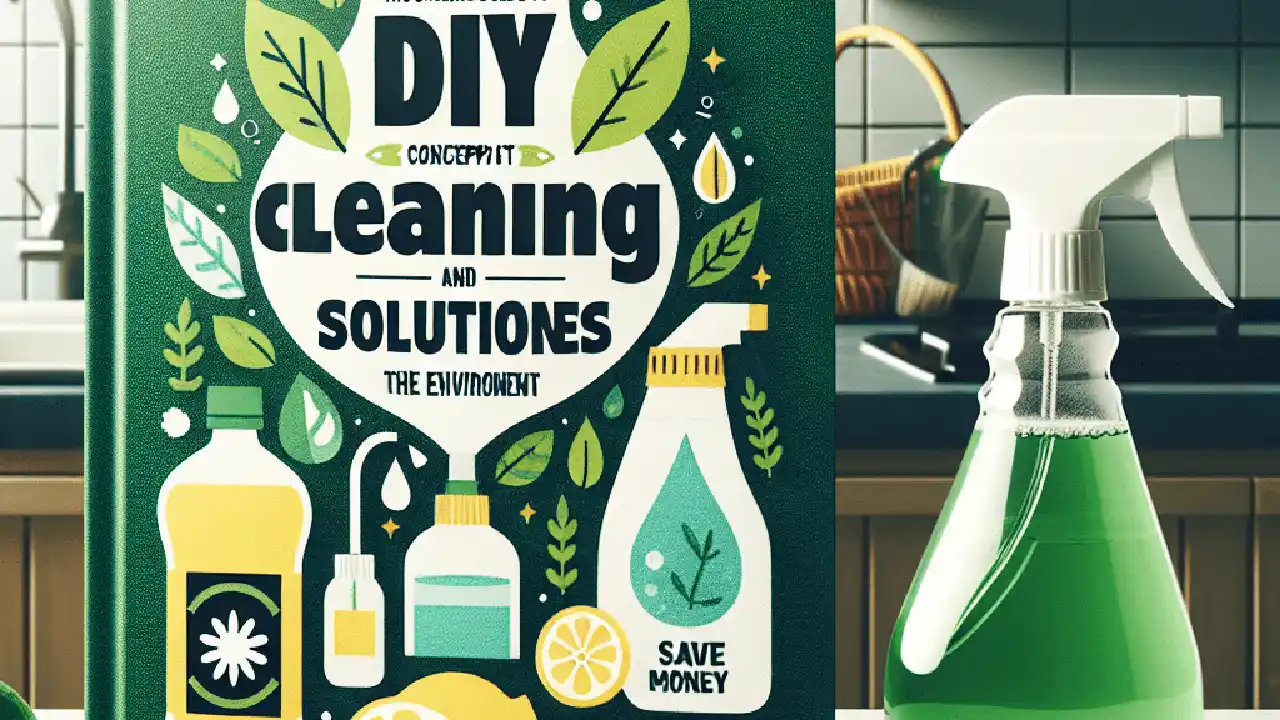
Why DIY Cleaning Matters Your Home Cleaning and Your Wallet
Let's face it, cleaning products can be expensive, and sometimes, you're not even sure what's in them. Plus, all those plastic bottles? Not exactly eco-friendly. That's where DIY cleaning solutions come in. They're cheaper, often more effective, and way better for the environment. You control the ingredients, so you know exactly what you're using on your surfaces. Think of it as a win-win-win for your home, your wallet, and the planet!
Essential Ingredients for Your DIY Home Cleaning Arsenal Natural Cleaning Supplies
Before you dive into making your own cleaners, you'll need a few key ingredients. These are the workhorses of DIY cleaning, and you'll find yourself reaching for them again and again:
- White Vinegar: The ultimate all-purpose cleaner. It's acidic, so it cuts through grease and grime like a champ.
- Baking Soda: A mild abrasive that's great for scrubbing and deodorizing. Think stained tubs and ovens.
- Lemon Juice: Another acidic powerhouse with a fresh, clean scent. Perfect for brightening surfaces and removing stains.
- Essential Oils: Not just for aromatherapy! Certain essential oils have antibacterial and antifungal properties, plus they smell amazing. Lavender, tea tree, and lemon are popular choices.
- Castile Soap: A gentle, plant-based soap that's effective for cleaning just about anything. Dr. Bronner's is a well-known brand.
- Water: Distilled water is best, as it's free of minerals that can leave streaks.
DIY All-Purpose Cleaner Vinegar Based Cleaning Recipe
This is your go-to cleaner for almost everything. Countertops, floors, sinks – you name it!
Ingredients:- 1 part white vinegar
- 1 part water
- Optional: 10-20 drops of your favorite essential oil (lemon, lavender, or tea tree are great)
- Combine all ingredients in a spray bottle.
- Shake well to mix.
- Spray onto surface and wipe clean with a cloth.
DIY Oven Cleaner Baking Soda and Vinegar for Oven Cleaning
Say goodbye to harsh chemical oven cleaners! This method takes a little longer, but it's much safer and more effective.
Ingredients:- Baking soda
- Water
- White vinegar
- Remove racks from oven.
- Mix ½ cup baking soda with enough water to form a paste.
- Spread the paste all over the inside of your oven, avoiding the heating elements.
- Let it sit overnight (at least 12 hours).
- The next day, spray the inside of the oven with white vinegar.
- The vinegar will react with the baking soda, creating a fizzing action.
- Wipe away the paste with a damp cloth. You may need to scrub a little.
DIY Toilet Bowl Cleaner Baking Soda and Vinegar for Toilet Cleaning
A sparkling clean toilet bowl without the harsh chemicals? Yes, please!
Ingredients:- 1 cup baking soda
- 1/2 cup white vinegar
- Optional: 5-10 drops of tea tree essential oil (for extra disinfecting power)
- Pour baking soda into the toilet bowl.
- Slowly pour in the white vinegar.
- Let the mixture fizz for about 30 minutes.
- Scrub the toilet bowl with a toilet brush and flush.
DIY Glass Cleaner Vinegar and Water for Streak Free Windows
Get streak-free windows and mirrors with this simple solution.
Ingredients:- 1 part white vinegar
- 10 parts water
- Optional: A few drops of essential oil (lemon or lavender)
- Combine all ingredients in a spray bottle.
- Spray onto glass surface and wipe clean with a microfiber cloth.
DIY Floor Cleaner Castile Soap and Water for Sparkling Floors
Keep your floors clean and shiny with this gentle and effective cleaner. Remember to spot test on an inconspicuous area first, especially on hardwood floors.
Ingredients:- 1/4 cup castile soap
- 2 gallons warm water
- Optional: 10-20 drops of essential oil (lemon or lavender)
- Combine all ingredients in a bucket.
- Mop the floor with the solution.
- Rinse with clean water if necessary.
Recommended Products to Enhance Your DIY Cleaning Experience The Best Cleaning Tools
While DIY cleaning solutions are fantastic, having the right tools can make the job even easier and more effective. Here are a few recommendations:
- Microfiber Cloths: These are essential for streak-free cleaning on windows, mirrors, and other surfaces. They're also great for dusting. Look for packs of multi-colored cloths to dedicate specific colors to different cleaning tasks (e.g., blue for bathrooms, green for kitchens). A good pack of 12 costs around $10-$15.
- Spray Bottles: Invest in a few good quality spray bottles that won't leak or clog. Amber glass bottles are a great option for storing essential oil-based cleaners, as they protect the oils from light degradation. A set of 3 amber glass bottles might cost around $20-$30. Plastic spray bottles are fine for other solutions, just make sure they are BPA-free.
- Squeegee: For streak-free windows and shower doors, a squeegee is a must-have. Look for one with a comfortable handle and a sharp rubber blade. A good squeegee will cost around $10-$20.
- Toilet Brush: A durable toilet brush is essential for keeping your toilet bowl clean. Choose one with a sturdy handle and bristles that can reach all the nooks and crannies. A decent toilet brush and holder will cost around $15-$25.
- Mop: Consider a microfiber mop for floor cleaning. They're more effective than traditional mops at picking up dirt and grime, and they're machine washable. Swiffer WetJet is popular, but consider a reusable microfiber pad option to reduce waste. A good microfiber mop system costs around $30-$50.
- Rubber Gloves: Protect your hands from harsh cleaners and bacteria with a pair of rubber gloves. Choose a pair that fits comfortably and is durable enough to withstand repeated use. A pair of reusable rubber gloves costs around $5-$10.
Comparing DIY Cleaning Solutions vs Store Bought Cleaners Cost Effectiveness and Environmental Impact
Let's break down the pros and cons of DIY cleaning solutions versus store-bought cleaners:
DIY Cleaning Solutions: Pros:- Cost-effective: Ingredients like vinegar, baking soda, and essential oils are much cheaper than pre-made cleaning products.
- Eco-friendly: Reduces plastic waste and avoids harsh chemicals that can harm the environment.
- Customizable: You control the ingredients and can adjust the recipes to suit your needs and preferences.
- Safer: Avoids harsh chemicals that can be harmful to your health.
- Requires preparation: You need to mix the solutions yourself.
- May not be as effective on all surfaces: Some DIY cleaners may not be suitable for certain surfaces, such as natural stone.
- Shelf life: DIY cleaners may not last as long as store-bought cleaners.
- Convenient: Ready to use right out of the bottle.
- Effective on a wide range of surfaces: Formulated to clean a variety of surfaces.
- Long shelf life: Can be stored for a long time.
- Expensive: Can be costly, especially if you buy a lot of different products.
- Harmful chemicals: Often contain harsh chemicals that can be harmful to your health and the environment.
- Plastic waste: Contribute to plastic waste.
- Less control over ingredients: You don't know exactly what's in them.
Specific Product Recommendations and Pricing For DIY Cleaning
Let's get specific with some product recommendations you can buy to enhance your DIY cleaning:
- Dr Bronner's Pure-Castile Liquid Soap (Lavender): A versatile soap for everything from floor cleaning to hand washing. A 32oz bottle costs around $16-$20. Available at most health food stores and online retailers like Amazon.
- Arm & Hammer Baking Soda: A staple for DIY cleaning. A 13.5lb bag costs around $10-$15 at most grocery stores.
- Heinz White Vinegar: Another essential ingredient. A 1-gallon jug costs around $3-$5 at most grocery stores.
- NOW Essential Oils (Lemon): Adds a fresh scent and antibacterial properties to your cleaners. A 1oz bottle costs around $8-$12. Available at health food stores and online.
- Puracy Natural Multi-Surface Cleaner Concentrate: If you *must* buy a pre-made cleaner, this is a good option. It's plant-based and concentrated, so you dilute it with water. A 16oz bottle makes several bottles of cleaner and costs around $15-$20. Available on Amazon and Puracy's website.
Safety Tips and Precautions When Using DIY Cleaning Solutions Important Safety Guidelines
While DIY cleaning is generally safe, it's important to take a few precautions:
- Never mix bleach with vinegar or ammonia: This can create toxic fumes.
- Store DIY cleaners in labeled containers: To avoid confusion and accidental ingestion.
- Keep DIY cleaners out of reach of children and pets: Just like with store-bought cleaners.
- Test DIY cleaners on an inconspicuous area first: To make sure they don't damage the surface.
- Wear gloves when cleaning: To protect your hands from irritation.
- Ensure proper ventilation: Open windows or use a fan when cleaning.
Troubleshooting Common DIY Cleaning Problems Solutions for DIY Cleaning Challenges
Sometimes, DIY cleaning doesn't go as planned. Here are a few common problems and how to fix them:
- Streaky windows: Use a microfiber cloth and make sure you're not using too much cleaner. Try diluting the vinegar solution further.
- Lingering vinegar smell: Add a few drops of essential oil to your cleaner. The smell will dissipate quickly.
- Baking soda paste is difficult to remove: Use a damp cloth and scrub gently. You can also try using a vinegar solution to help dissolve the baking soda.
- Cleaner isn't effective enough: Try increasing the concentration of the active ingredient (e.g., more vinegar or baking soda). Make sure you're letting the cleaner sit on the surface for a few minutes before wiping it away.
Embrace the DIY Cleaning Revolution For a Cleaner Home and Planet
So, there you have it! DIY cleaning solutions are a simple, affordable, and eco-friendly way to keep your home sparkling clean. Give them a try and see the difference they can make for your home, your wallet, and the planet. You might be surprised at how effective (and enjoyable!) DIY cleaning can be.
:max_bytes(150000):strip_icc()/277019-baked-pork-chops-with-cream-of-mushroom-soup-DDMFS-beauty-4x3-BG-7505-5762b731cf30447d9cbbbbbf387beafa.jpg)



